
Random variables are a set of possible outcomes from a random experiment. They can either be discrete or continuous. In this chapter we will find out more about discrete random variables, how they can be represented, displayed and analysed.
In this unit you should learn to…
- Understand what a discrete random variable is
- Find the probability distribution of a discrete random variable
- Find the expected value for discrete data
Self Checking quiz
Practice your understanding on these quiz questions. Check your answers when you are done and read the worked solutions when you get stuck. If you find there are still some gaps in your understanding then go back to the videos above.
The following questions are based on IB exam style questions from past exams. You should print these off (from the document at the top) and try to do these questions under exam conditions. Then you can check your work with the video solution.
Jenni plays a game using a spinner. The values on the spinner are labelled -5,0,3 and 10. The score for the game, X, is the value the spinner lands on. The following table shows the probability distribution for X.
| Score X | -5 | 0 | 3 | 10 |
| P(X=x) | 0.29 | a | 0.39 | 0.19 |
-
What is the value of a?
(1)
-
What is Jenni’s expected score if she plays the game once?
(2)
Jenni plays this game at a fair, and wins the amount in $ that the spinner lands on.
-
What would be a fair price for Jenni to pay?
(1)
-
Jenni plays the game twice and adds up her scores. What is the probability that she gets a total score of 3?
(3)
(7 marks)
Video solution
How much of 4.7 Discrete random variables have you understood?


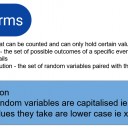
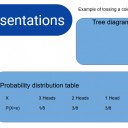
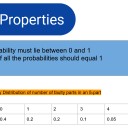
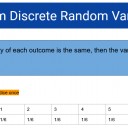
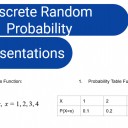
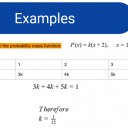
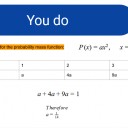
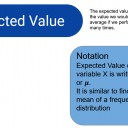
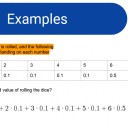

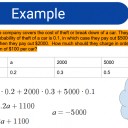
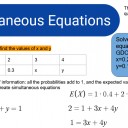
 Twitter
Twitter  Facebook
Facebook  LinkedIn
LinkedIn